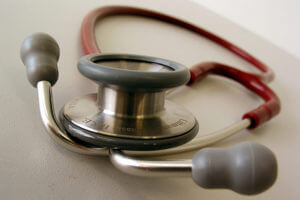What Should Doctors Tell Patients About Medical Errors in Hospitals?

According to a recent article in Healthcare IT News, hospitals in Champaign and across the country are beginning to think about handling medical errors a little bit differently. In short, as the article explains, many facilities are taking “a more open approach to medical errors” based on a number of studies suggesting that patients want to have as much information as possible when something goes wrong. Until relatively recently, many physicians indicated that they were anxious about how to handle medical errors that occurred in hospitals because of concerns about restrictions on information-sharing. After all, when a doctor makes a medical error while practicing in a hospital, the injured patient (or her family) may be able to file a medical malpractice claim against the hospital.
When we hear that physicians and surgeons are being more open about medical errors, what does this mean in practice? Will patients have access to more information about how the mistake happened in the first place? And will less secrecy surrounding medical mistakes actually result in more medical negligence claims against hospitals?
Deciding Whether to Apologize and to Disclose Details
While doctors and patients alike would prefer to be at a point where we do not need to think about how medical errors in a hospital—or rather, the aftermath of those mistakes—should be handled, it does not seem as though that moment is in the very near future. While a recent study reported in JAMA: The Journal of the American Medical Association suggested that previously reported findings of medical mistake rates might not be entirely accurate, we still know that medical errors occur with enough frequency in hospitals that we need to be talking about how these facilities, and the surgeons working there, should handle them.
As the article in Healthcare IT News discusses, physicians are often uncertain on what they should do after a medical error has occurred, especially when it has resulted in a patient fatality. As one physician explained, she did not know how to handle a medical mistake without any guidance from the hospital: “Should she apologize? How much detail should she share about the mistake? Would a frank discussion put the hospital at risk of a lawsuit?”
This particular doctor is not the only one to indicate that she did not know what she could or could not do or say following a patient’s injury. In many cases, patients and their families have indicated that they want to speak with the doctor after a mistake occurs, and they want the doctor to offer an apology. Some families want to know specific details about the medical error and how the patient’s injury took place.
Hospitals Are Changing the Way They Handle Medical Errors
As the article clarifies, “[h]ospitals have traditionally been reticent to disclose to patients or their family members the specifics of how a medical procedure didn’t go as planned for fear of malpractice lawsuits.” However, with assistance from the federal Agency for Healthcare Research and Quality (AHRQ), many hospitals are now moving away from a “deny-and-defend approach” toward a more open relationship with patients and their families. The AHRQ recently provided an “online toolkit” that “establishes guidelines for adopting more transparency in communicating adverse events.”
Contact a Champaign Medical Malpractice Attorney
While many hospitals are adopting the AHRQ’s recommendations for handling medical errors and patient injuries, there remain numerous facilities that continue to deny patients and their families any information about mistakes that occurred. If you or someone you love suffered a serious injury because of a surgical mistake, you should discuss your options with an experienced Champaign medical malpractice attorney. Contact Woodruff Johnson & Evans Law Offices today for more information.
